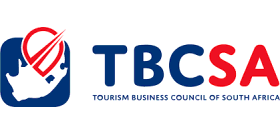 South Africa’s Tourism Leadership Conference Champions Growth, Innovation, and Policy Reform
South Africa’s Tourism Leadership Conference Champions Growth, Innovation, and Policy Reform
The fourth annual Tourism Business Council of South Africa (TBCSA) Tourism Leadership Conference is currently unfolding at Sun City, North West, under the compelling theme Matters of Tourism: Growth, People and Policy. This pivotal event serves as a dynamic forum for industry leaders, policymakers, and stakeholders to engage in critical discussions amid a rapidly evolving global landscape marked by political shifts, economic challenges, and technological breakthroughs. As South Africa aims to welcome 15 million visitors by 2030, the conference doubles as a vital checkpoint to assess progress and chart the future course of the nation’s tourism sector.
Over three intensive days (17–19 September 2025), the focus is on unlocking new growth avenues, empowering communities, and fostering agile policies that enhance South Africa’s competitive edge on the world stage. Tourism remains a cornerstone of the country’s development strategy, contributing significantly to inclusive economic growth, job creation, and global market positioning. In 2024 alone, the sector injected R618.7 billion into the economy and supported 1.8 million jobs, with projections for 2025 indicating a rise to 1.9 million jobs. Yet, sustaining this momentum demands a robust enabling environment—comprising modern infrastructure, streamlined visa processes, targeted skills development, and cohesive policy frameworks.
The conference’s second day opened with a powerful address from TBCSA Chairperson Jerry Mabena, who underscored the inseparable link between growth, people, and policy. Mabena emphasized that “growth without people is unsustainable; people without supportive policy are disempowered; and policy without concerted action risks being a little more than words on paper.” He called on all stakeholders present to act decisively, likening the synergy needed to the interlocking gears of a well-oiled engine that can propel tourism to its full potential as a driver of South Africa’s prosperity.
Minister of Tourism Patricia De Lille echoed these sentiments in her keynote, highlighting the imperative to position South Africa as a premier tourism destination while simultaneously creating meaningful employment and dignity for its people. She reiterated the importance of the Tourism Growth Partnership Plan, a collective blueprint anchored on five strategic pillars that guide the sector’s future. These pillars focus on delivering growth, job creation, and skills development, with a special emphasis on opportunities for youth and women. “Tourism is about the millions of South Africans whose livelihoods depend on it—and the millions more who can benefit from our collective success,” De Lille stated, urging the sector to rise above distractions and prioritize implementation to achieve tangible results.
A recurring theme throughout the conference has been the urgent need to simplify South Africa’s visa regime, particularly for visitors from key source markets. Home Affairs Minister Dr Leon Schreiber made a notable return to the event, unveiling the groundbreaking Electronic Travel Authorisation (ETA) system. This innovative platform enables online visa applications with biometric capture and real-time approvals, effectively eliminating long processing times and cumbersome paperwork. The ETA promises to revolutionize border entry by automating biometric checks and minimizing queues, thereby enhancing both traveler experience and national security. Schreiber highlighted that this digital transformation will replace outdated, inefficient processes with a seamless, modern system that positions South Africa as a global leader in immigration innovation.
Beyond policy and infrastructure, the conference has also spotlighted the transformative role of technology in tourism’s future. Industry experts like Al Merschen from MMYG Global and Dr Avashna Govender from The Innoverse shared insights on how emerging technologies, particularly Artificial Intelligence (AI), are reshaping global travel trends and how South Africa can harness these advancements to its advantage. Their presentations explored AI’s potential to enhance personalization, operational efficiency, and marketing effectiveness within the tourism sector.
Economic perspectives were provided by Sanisha Packirisamy, Chief Economist at Momentum, who offered a comprehensive outlook on local, African, and global economic conditions affecting tourism. Her analysis emphasized the importance of inclusive growth strategies that consider the diverse challenges and opportunities facing industry players. Meanwhile, the Leadership Masterclass delivered by Professor Bonang Mohale, Chancellor of the University of the Free State, reflected on South Africa’s political, social, and economic journey since democracy’s dawn. Mohale encouraged tourism leaders to actively shape and narrate the evolving South African story, positioning themselves as custodians of the nation’s ongoing transformation.
The day’s proceedings culminated with a candid progress report from TBCSA CEO Tshifhiwa Tshivhengwa, who reaffirmed the Council’s commitment to accountability and action. “Every year, we talk about what we have actioned. We don’t want the conference to be a talk shop. We must be accountable. It is important to come back and say what we have done,” Tshivhengwa told attendees, reinforcing the conference’s role as a catalyst for measurable industry advancement.
As South Africa’s tourism sector navigates a complex and competitive global environment, the 2025 Tourism Leadership Conference stands out as a beacon of collaboration, innovation, and strategic focus. The convergence of government, private sector, and community voices here signals a shared determination to unlock the full potential of tourism—not only as an economic powerhouse but as a vehicle for social upliftment and national pride. For the wider African travel industry, the lessons and initiatives emerging from this gathering offer valuable insights into how integrated policy, technology, and people-centered approaches can drive sustainable growth across the continent’s diverse tourism landscapes.
